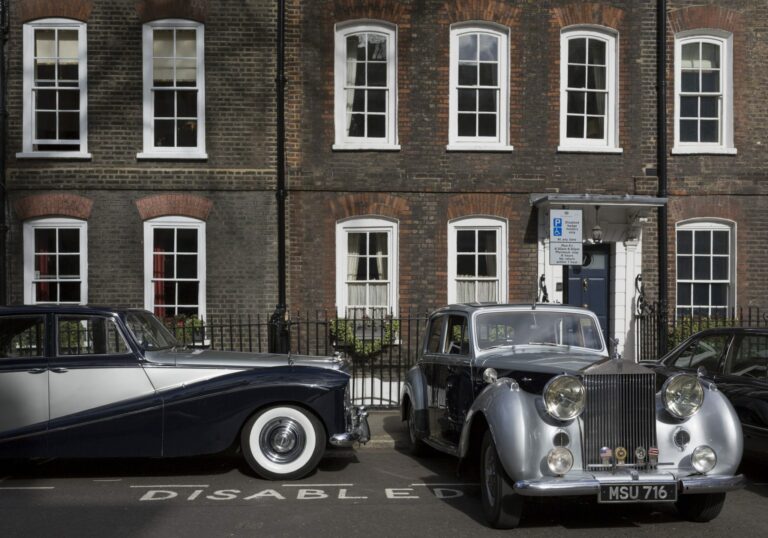The U.K.’s luxury car industry, a cornerstone of its manufacturing sector, faces potentially devastating consequences following the imposition of tariffs by the Trump administration on imported vehicles and parts.

According to a 2019 photo, a Bentley and a Rolls-Royce await passengers in London.
The Trump administration’s move, which levied a 25% import tariff on cars and certain components, aims to encourage manufacturing in the U.S. and potentially impacts the U.K.’s lucrative export market.
The U.K. is home to renowned luxury car manufacturers such as Bentley, Aston Martin, Rolls Royce, Lotus, McLaren, and Jaguar Land Rover. Excluding Jaguar Land Rover, these companies generate approximately £6.4 billion ($8.3 billion) in annual revenue.
Four out of every five cars manufactured in the U.K. are exported. The U.S. is the largest single export market for U.K. autos, absorbing 17% of the country’s car exports. In the previous year, the U.K. shipped £6.4 billion ($8.3 billion) worth of cars and parts to the U.S.
The Society of Motor Manufacturers and Traders (SMMT) found that the entire autos market was the U.K.’s most valuable manufactured goods export. Analysis showed the industry to be worth £46.8 billion ($60.5 billion) in the twelve months leading up to June of last year .
BMW, Stellantis, and Volkswagen have already begun to outline plans to circumvent the incoming tariffs.
Unlike mass-market manufacturers, U.K. luxury carmakers have fewer options. Their appeal often stems from the legacy associated with their manufacturing. Bentley, for instance, has consistently produced cars at its Crewe plant since 1946.
The smaller scale of luxury car production means that any decline in output can have a disproportionate impact on profit margins. Rolls-Royce, which counts Trump as a customer, represents just 0.02% of the total cars sold by its parent company, BMW.
Aston Martin shipped fewer than 2,000 vehicles to the Americas last year but generated $630 million in revenue from the region. The company’s shares reportedly fell more than 5% in early trading.
With limited alternatives, the U.K.’s luxury car market may need to pass costs onto their clientele. Bentley’s CEO, Frank-Steffen Walliser, noted this possibility last week.
Mike Hawes, the SMMT chief executive, expressed concern and urged both the U.K. and U.S. to negotiate to avoid tariffs that would harm both sides of the Atlantic. He stated that the announcement was “not surprising but, nevertheless, disappointing if, as seems likely, additional tariffs are to apply to U.K. made cars.”



